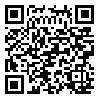Sat, Apr 5, 2025
[Archive]
1- Post-doc researcher at UNESCO Chair on Urban resilience, University of Southern Denmark, Denmark , mami@iti.sdu.dk
2- Project officer at UN-Habitat, Tehran
2- Project officer at UN-Habitat, Tehran
Abstract:
Despite decades of experience in urban planning, Iran lacks a robust urban policy framework to guide its rapid urbanization towards sustainable and resilient development. Moreover, its existing sectoral policies have failed to operate within an integrated framework. The formulation of a National Urban Policy (NUP), as proposed by UN-Habitat, offers a unified structure to facilitate the preparation, implementation, monitoring, and evaluation of urban policies nationwide. However, there is no single approach to develop NUP and urban policymaking in each country needs to be sensitive to its socio-economic and political context. This research employs a qualitative method to define Iran’s NUP framework and develop its content based on the specific circumstances of urbanization in Iran. Drawing on 32 national and international documents, the analysis identifies key themes for creating a sustainable urban future. The findings advocate for a contextualized and localized approach to formulating the NUP, incorporating six building blocks and twenty themes. They emphasize the necessity of a forward-thinking approach to urban planning, addressing critical issues such as climate change, internal migrations, aging populations, and the environmental impact of urbanization. The study also introduces a participatory, data-driven, and integrated approach to ensure the effectiveness of proposed policies and stresses the importance of periodic policy evaluation and adaptation to address future uncertainties.
Keywords: National Urban Policy, Urban Planning, Policy Making, Resilient Cities, Sustainable Urban Development
Type of Study: Research Paper |
Subject:
Regional Planning
| Rights and permissions | |
 | This work is licensed under a Creative Commons Attribution-NonCommercial 4.0 International License. |





